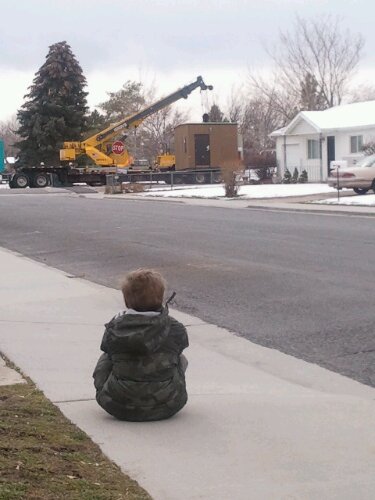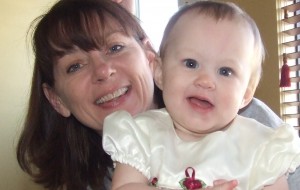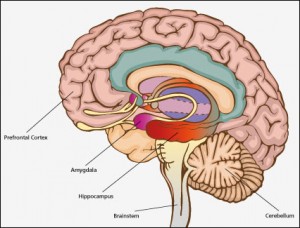Hayden is a smart kid. Sometimes, a little too smart for his own good.
Hayden has been working on behavior incentives at school. Every morning before school, we review what he needs to work on that day. His first day, he did a good job. The next morning as we walked to school, I told him, “You’re doing so well, Hayden. We want to keep it up, right?”
H: “Well, I don’t want to keep it down!”

Watching a crane at work
“Mom, that car [he might have said “Vehicle”] over there is taking a lot of gas. It’s an S-U-Vay.”
From time to time, Hayden requests to play a CD of Primary music. One of these times, “I Love to See the Temple” was playing in the background as the kids were playing. Hayden found a golf ball.
Rebecca: “Hayden, I want to see!”
Hayden: “You want to see the temple?”
Rebecca: “No, I want to see the gowf baww!”
Video of the above photo:
(Turned out to be a supply closet, actually.)
He sometimes watches a PBS Kids Go webtoon about nutrition. The cartoon has drummed it into his brain that sodium is the big bad evil lurking in most foods—so he insists on checking the sodium level on every nutrition label.
He’s taken this so far that one of his favorite meals, Spaghettios, must be eaten in moderation, because half a can has around 25% of the DRV of sodium.
I hope he lives a long, funny life.

 Even in a very limited setting—all the nurturing was done at the lab, and they didn’t follow the parents and children home—they were able to observe the difference between children whose parents supported them and those who didn’t:
Even in a very limited setting—all the nurturing was done at the lab, and they didn’t follow the parents and children home—they were able to observe the difference between children whose parents supported them and those who didn’t: